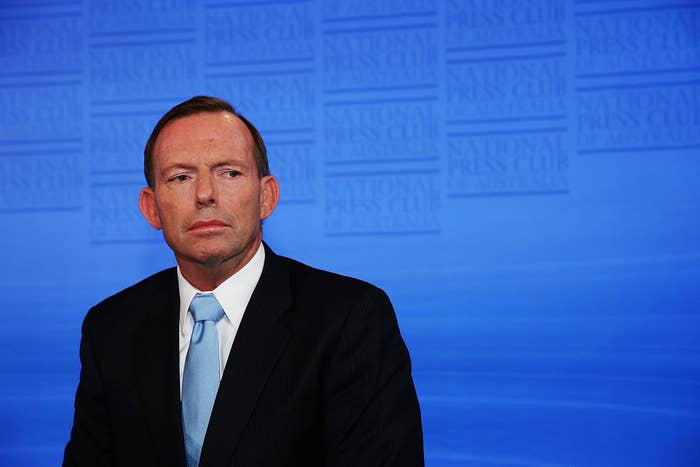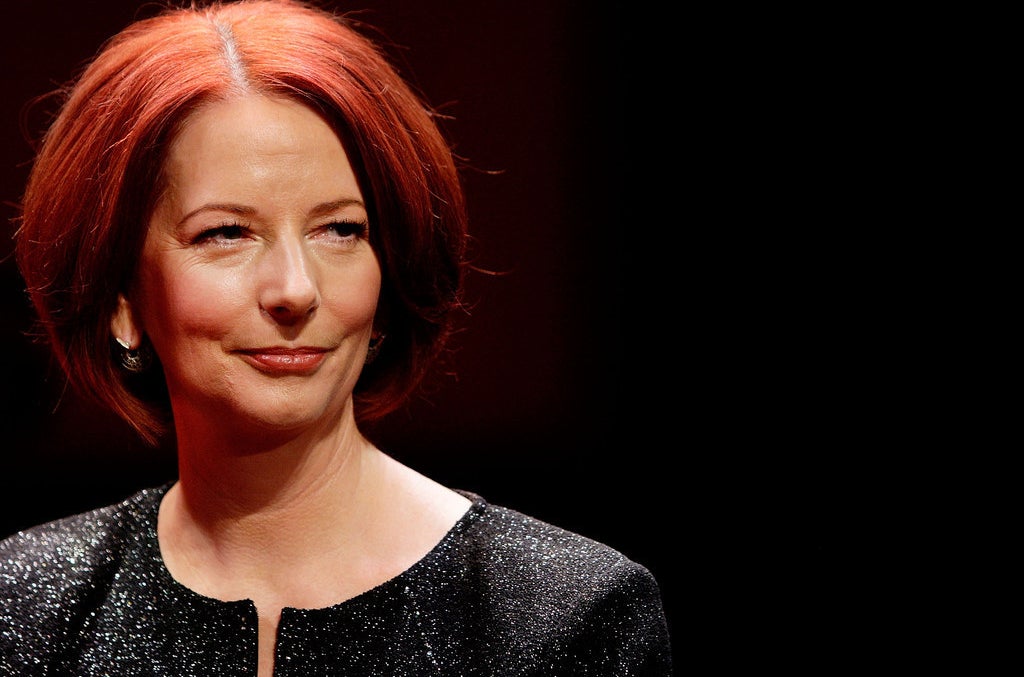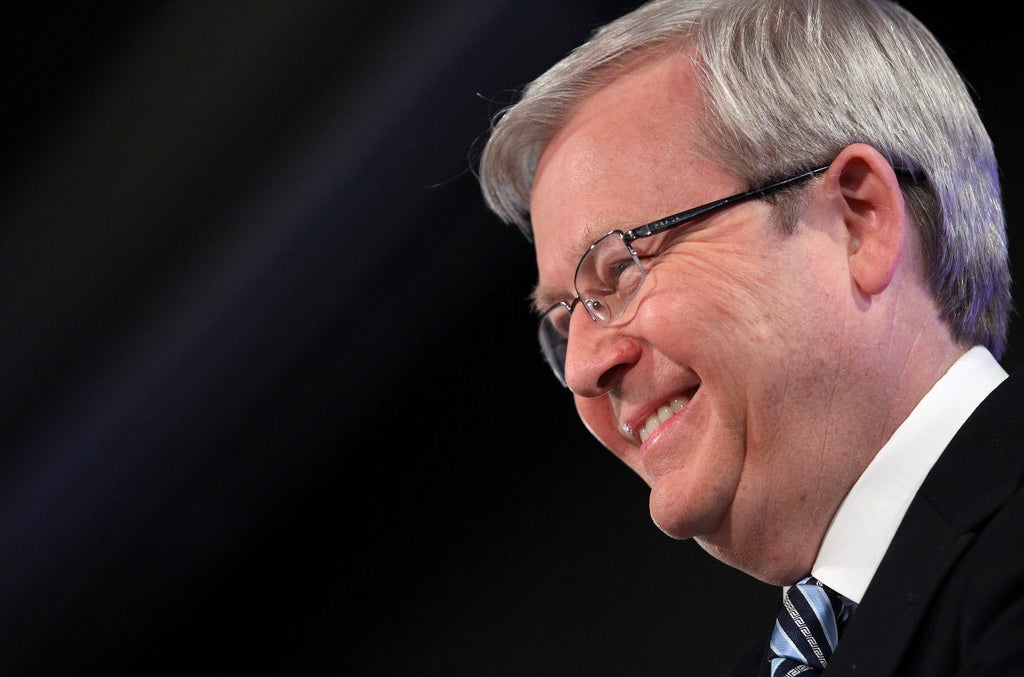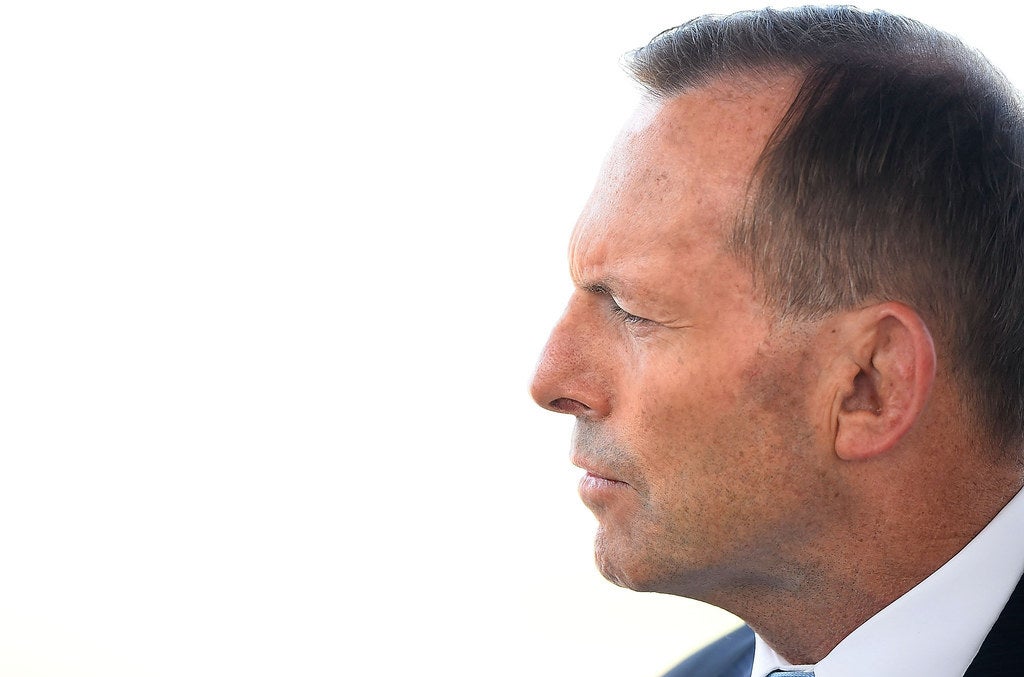
It's been 15 years since the American author Bill Bryson arrived in Australia to pen another of his famed travel memoirs, opening his account with the admission that he had lost track of who the prime minister was.
"I am forever doing this with the Australian prime minister—committing the name to memory, forgetting it (generally more or less instantly), then feeling terribly guilty," Bryson wrote in the first lines of In A Sunburned Country. "My thinking is that there ought to be one person outside Australia who knows."
Bryson shouldn't feel guilty. Keeping track of who holds Australia's top job has become increasingly more difficult in recent years, as the Great Southern Land lurches from one unpopular leader to the next. On Monday, current Prime Minister Tony Abbott may be unseated in an internal party revolt, with Australians preparing for their fifth leader in just eight years.
The knives are out for Abbott after a series of disastrous missteps on his behalf, capped off by his left-field decision last month to award a knighthood to Prince Philip. The decision, announced on the country's national holiday, to honor the often controversial husband of Queen Elizabeth above any number of others flabbergasted Australians, including many in Abbott's own conservative party. In terms of surprises from the monarchist leader, it perhaps ranked second only to his decision last year to resurrect the system of knighthoods and dameships to begin with.
The symbolism of Abbott's "knightmare," as the tabloids have since termed it, now stands as the tipping point in his tenure as prime minister, but would hardly have been fatal were it not for his already disastrously low poll numbers, according to Julia Baird, a presenter with the state-funded Australian Broadcasting Corporation and columnist for the New York Times. "Tony Abbott has always been an unpopular leader, and has failed to persuade the electorate of the merit of his reforms, or to create a convincing narrative about his core economic policies," Baird told BuzzFeed News.
"The budget last May was demonstrably skewed towards placing the burden of fiscal restraint on the more vulnerable: the sick, the young, the poor," Baird said. "There have also been too many 'surprises': policies introduced after the election without forewarning, and backflips on 'signature' policies."
Abbott's Liberal Party was swept to power in September of 2013 after years of infighting in the center-left Labor Party that saw the then-government remove Kevin Rudd as prime minister in 2010 in favor of the country's first female leader, Julia Gillard, only to then oust her in 2013 and return Rudd to the top job. Despite never enjoying high personal popularity himself, Abbott's steadfast and dogged leadership while in opposition helped his party coast to victory. The Liberals represented stability, while Labor was all chaos. Or, at least, that's how it used to be.


Of course, under Australia's Westminster system the people don't vote directly for the executive branch of government, as they do in presidential elections in the U.S. and elsewhere. Voters instead elect members of Parliament, with the party that holds the majority in the lower house of the legislature able to form government. Who holds the top job is a matter for the governing party, but it's only in recent years that Australians haven't been able to have a great sense of ongoing certainty that their prime minister won't be scalped by his or her own colleagues.
"Such rapid turnaround of leaders does create some serious concerns about stability and allowing elected leaders time to govern," Baird said. "If Tony Abbott is rolled, this will be the first time the Liberal Party has got rid of a leader in his first term. This is a troubling precedent as it makes parties even more nervous about placating the public, and less able to make tough, unpopular decisions that might be required, for example, to reduce government debt or the deficit."
Australian politics' reputation for ruthlessness is spreading. "Canberra is the coup capital of the Western world," the BBC's former Sydney correspondent Nick Bryant wrote in his 2014 book The Rise and Fall of Australia, which may well need an update depending on Monday's result. "The stock analogy has become a soap opera. … Because of the high casualty rate, political coverage has come to resemble triage: a sifting of the wounded and the slain."
Indeed, the Australian media has a unique ability to sniff out political blood, and it seems Abbott's political eulogy is already being written. Even the conservative, Rupert Murdoch-owned tabloids that dominate much of the country seemed aghast at the Prince Philip decision, now depicting Abbott as a jester not even two years after crowning him as the savior from the Rudd-Gillard years. Even if Abbott survives Monday's "spill motion," as the leadership vote is called, the ongoing media story until the 2016 election will be the rats in the ranks.
"It's true that the media has always loved a leadership story," Baird said, "and the intense scrutiny can become crippling for a leader who finds it impossible to force journalists to focus on policy when they are under internal attack."
"But in both the Rudd-Gillard-Rudd governments and this one, the attacks, leaks, and criticisms are coming from the relevant parties," she said. "The media makes a convenient excuse."


The political instability Down Under is made all the more curious by the economic stability Australia has enjoyed in recent years relative to the rest of the world. The country's plentiful natural resources, as well as some quick thinking from the former Labor government (which inherited a bountiful economy from the conservatives before them), meant Australia largely survived the global financial crisis unscathed. But, as Bryant argues, this may help to explain the country's bloody politics: "Had the country confronted larger problems, such as a recession or some other national convulsion, it could not have afforded the extravagance of so much leadership speculation and overall silliness," he wrote.
"Given the high casualty rate and coup culture, will there ever again be an Australian P.M. who will get the word era attached to their name?" Bryant asked on Twitter on Saturday.
Abbott's main competitor Monday will be Malcolm Turnbull, his current Communications Minister and a self-made millionaire who leans more toward the political center and enjoys much more public support. While Rudd was prime minister, Turnbull led the Liberals in opposition until he was deposed by — you guessed it — Abbott. But with Abbott's unpopularity dragging down the government, worried backbenchers see Turnbull as their last great hope to right the sinking ship, much in the same way Labor members once looked to Gillard — and then back to Rudd.
Have you lost track yet?
